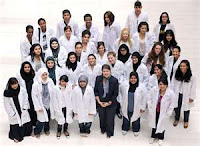Educational Universities in the UK have been renowned for their excellent standards in the field of Higher Education.Over 150 universities and colleges equipped with latest facilities for teaching and research.The UK Education system is among the best education systems in the world.The UK Goverment invites students from all over the world to apply and study in UK institutions. Eligibility to Enter into OXFORD, CAMBRIDGE and LONDON University requires "A" level results .i.e, in Indian terms one year in a college after 12 years of Education.Most of the Post Graduat Universities in UK accept the Indian graduation system of 3 years for entry.
The United Kingdom is made up of 4 different countries: England,Scotland, Wales & Ireland.
and the UK has two Distinct Education Systems:
- England,Wales and Ireland
- Scotland
Whether it is Undergraduate studies or Post graduate studies,UK education system offers you studies with quality.
The UK Student visa application process are that one of the educational institutions endorsed by the Department of Education and Skills should accept the student.
- A Letter of Acceptance on the course
- Evidence that you can pay the course fee and support yourself and your family, if applicable
- Interview ia also a part of the Visa application process.
Eligibilty is calculated using the New UK Visa points based system, in which student have to score 40 points to apply for a student visa for education in UKTop Universities in UK::
- University of Oxford
- Imperial College London
- University of St. Andrews
- University College London
- University of Warwick
- London School of Economics
- Durham University
- University of Exeter
- Bristol University
USEFUL SITES FOR EDUCATION IN UK:
- British Education: UK Universities, Colleges and Research Sites(www.scit.wlv.ac.uk/ukinfo/ac/working.alpha.html)
- Undergraduate Education in the UK(http://www.ucas.ac.uk/)
- British Accreditation Council for Independent Further and Higher Education
- (www.the-bac.org/index/html)
- British Council Education Information System(www.britishcouncil.org/eis)
- Further Education Funding Council(http://www.fefc.ac.uk/)
- Further Education College Sites(www.bham.ac.uk/webmaster/ukcwww)












































